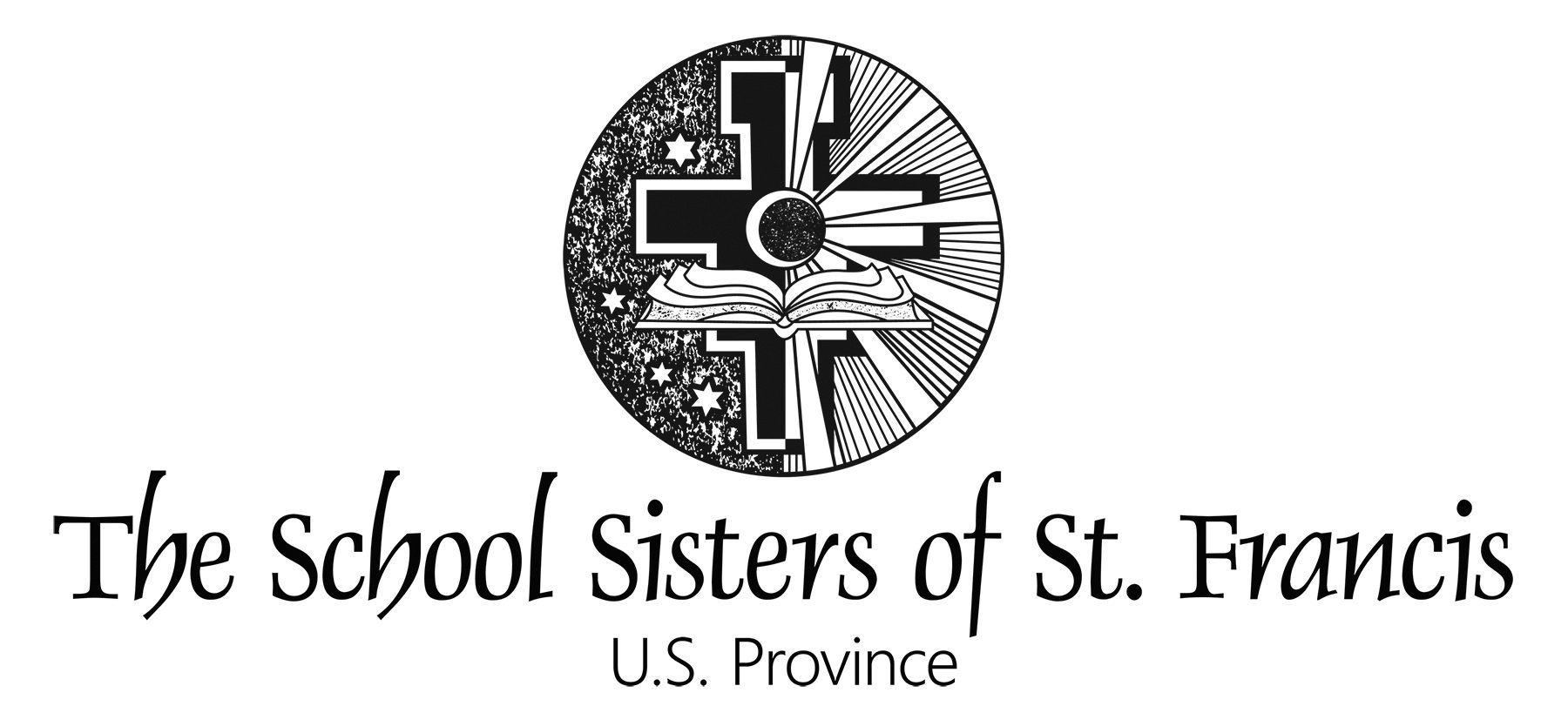A Time to Act
Border Encounter Reconnects texas-based Sister
with real-time importance of Catholic Social Teaching
Sister Adelina Garcia (seated third from left) with her fellow delgates to the Southern Border.
Sister Adelina Garcia returned from her service work at the Southern Border weeks ago, but part of her heart is still there. Her encounter with migrants and farm workers in Texas, New Mexico and Mexico has stirred her soul and, by her own admission, left her with much to process.
“It was a long, but very powerful week,” Sister says. “Now more than ever, we must learn to be Catholic and practice our faith, be missionary disciples and a voice for the voiceless.”
Sister was part of a delegation who took part in a week-long Pastoral Encounter at the Border with Migrants, sponsored by Home Missions and the United States Conference of Catholic Bishops. The delegation met with farmworkers, refugees and immigrants to hear their stories, share spirituality, and learn about conditions in their places of work and detention.
Upon their return to their regular ministries, members of the delegation share what they’ve learned in an effort to educate others about the humanitarian crisis along the border that separates the United States from Mexico and, all too often these days, migrants from their families.
“I thought I was really in touch with the border reality only to find there is so much I need to learn.”
The delegation included professionals from around the country who work in advocacy and awareness; minister to farmworkers, immigrants and refugees; and are active in youth ministry. Sister Adelina is assistant director of Evangelization & Catechesis with the Diocese of San Angelo, Texas. Her role in the diocese, fluency in Spanish, and past work with World Youth Day made her a perfect fit.
Over the course of a week in September, the delegation visited El Paso, Texas; Las Cruces and Hatch, N.M.; and Ciudad Juarez and Anapra in Mexico. They met with migrants and farmworkers, coordinated spiritual services and got a first-hand look at the factors that drive so many migrants from their homes in Mexico and Central America – from volcanic ash ruining coffee crops and, in turn, economies in Guatemala to the persecution of Catholics in Nicaragua.
“That day I saw the face of Christ,” said a young teen who’d been recruited by his youth minister to come help at the border. With tears running down his face, he relayed his experience in Hatch of reaching out to the refugees coming into their community last summer.
Despite meager conditions – rising at 3 a.m. and working through the day until 7 p.m. while wearing headlamps at times to see the crops they harvest – migrant farmworkers take great pride in their work. “They are so proud of the work they do,” she says. “One man said to me, ‘We plant the seeds, watch them grow, harvest them and put food on the table of the people – this is Eucharist.’”
The stories Sister heard were both painful and inspirational. In New Mexico, she saw migrants shed tears as they recounted how, during recent mass migration from Central America, 8 some people did not even want to touch them. A youth minister rallied her youth group to clothe, feed and build relationships with the migrants. “We remembered how the people would hide Jews in their homes during World War II,” the youth minister said. “We did the same here.”
some people did not even want to touch them. A youth minister rallied her youth group to clothe, feed and build relationships with the migrants. “We remembered how the people would hide Jews in their homes during World War II,” the youth minister said. “We did the same here.”
“It is so easy to dehumanize people when we do not know them, have not met them, do not see them face to face,” Sister Adelina says.
In Ciudad Juarez, the four bishops with the delegation blessed migrants at Casa del Migrante who had been denied assylum and were boarding a bus for deportation to Honduras. They heard the story of a young man who grew up in Seattle and spoke no Spanish but who faced an uncertain future under the DACA program.
In El Paso, they prayed at the Wal-Mart store where 22 people lost their lives in a racially-motivated mass shooting in August, and encountered three elderly sisters who aid pregnant mothers by keeping Casa Vides running entirely on donations with no government funding.
They also learned that in El Paso – which considers itself a city without borders – the immigration crisis is amplified by a virtual wall of laws and 53 miles of physical wall that cost $700 million, more than twice the $257 million in aid to Guatemala needed to address the issue at its roots.
In the absence of government action, the people along the border step up to welcome the stranger and model hospitality. The Church, likewise, is challenged to reach into its Catholic Social Teaching toolkit and, as Sister says, “assist those who are displaced, accompany our brothers and sisters and practice our faith as Gospel people. We are called to be Gente Puente (Bridge People).
“I thought I was really in touch with the border reality only to find there is so much I have to learn,” Sister Adelina says. “There are heroes living there on both sides. We, as religious, can make a big difference.”







